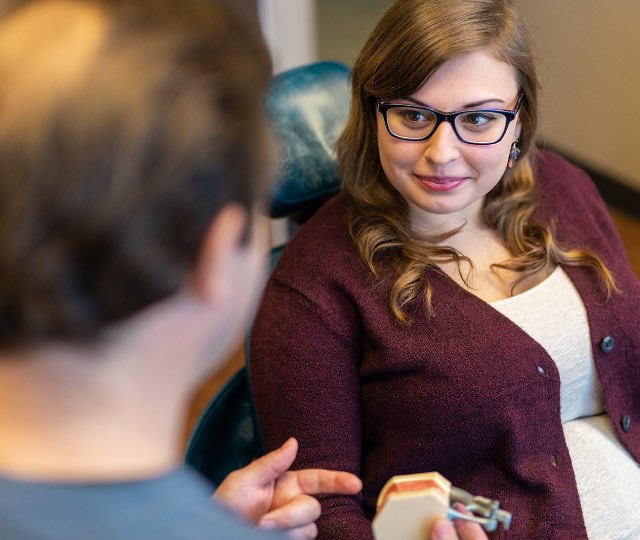Humans have two upper (maxillary) canines and two lower (mandibular) canines. Canine teeth are sometimes referred to as cuspids, fangs, or “eye teeth” because of their direct positioning beneath the eyes. Canine teeth have thicker and more conical roots than incisors and thus have an especially firm connection to the jaw. Canine teeth often have the longest root of all teeth in the human mouth and are the last to fully erupt and fall into place, often around age 13.
An impacted tooth essentially means that it is blocked, stuck, or unable to fully erupt and function properly. Third molars (wisdom teeth) most commonly fall victim to impaction, but the upper canine is the second most common tooth to become impacted. Wisdom teeth serve no important function in the mouth and are frequently removed; however, impacted canines are a critical condition and require treatment for the following reasons:
- Closing Gaps – Canines are the last of the front teeth to fall into place and therefore close any unsightly gaps between the other upper teeth.
- First Touch – Canines play a vital role in the “biting” mechanism of the teeth. They touch first when the jaw closes, and guide the other teeth into position.
- Proper Alignment & Function – Canine teeth are essential to the correct alignment and function of the other teeth on the dental arch. Missing or impacted canines can greatly affect the function and aesthetic appearance of the smile.



